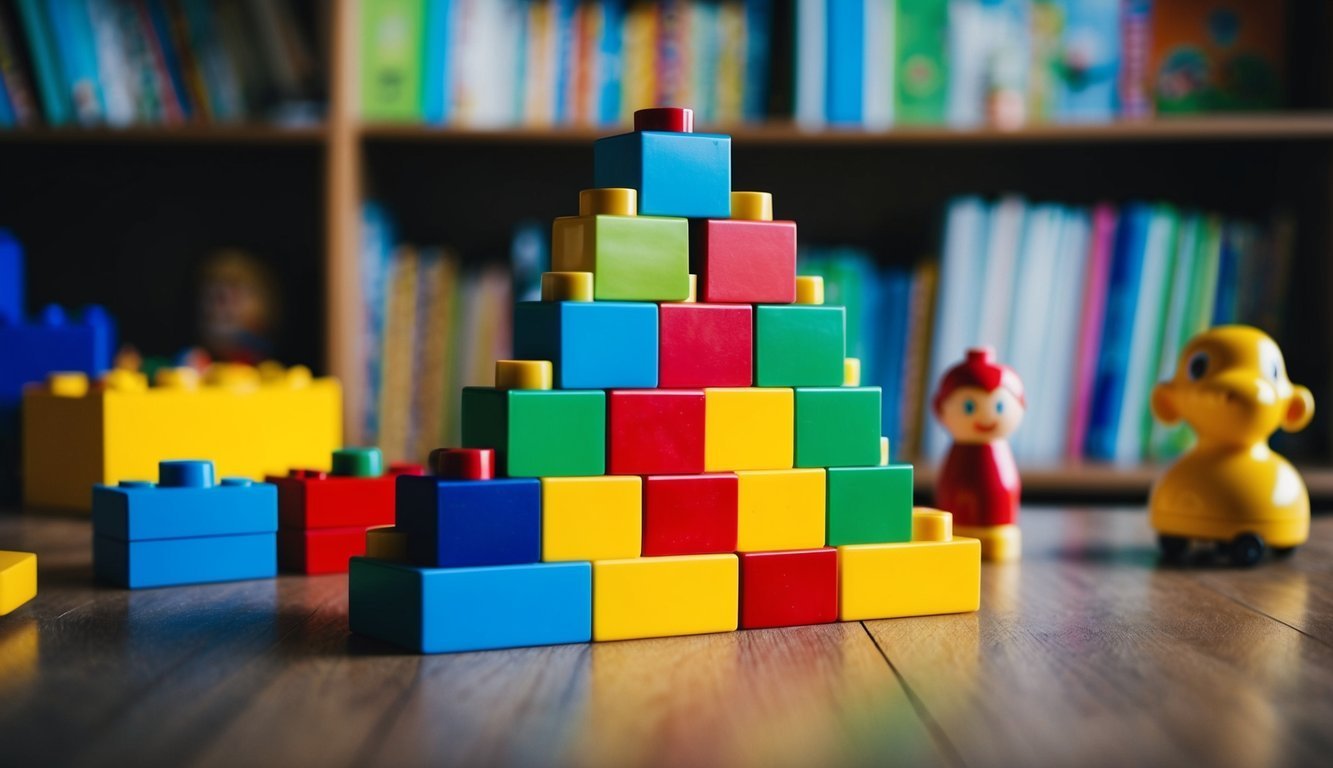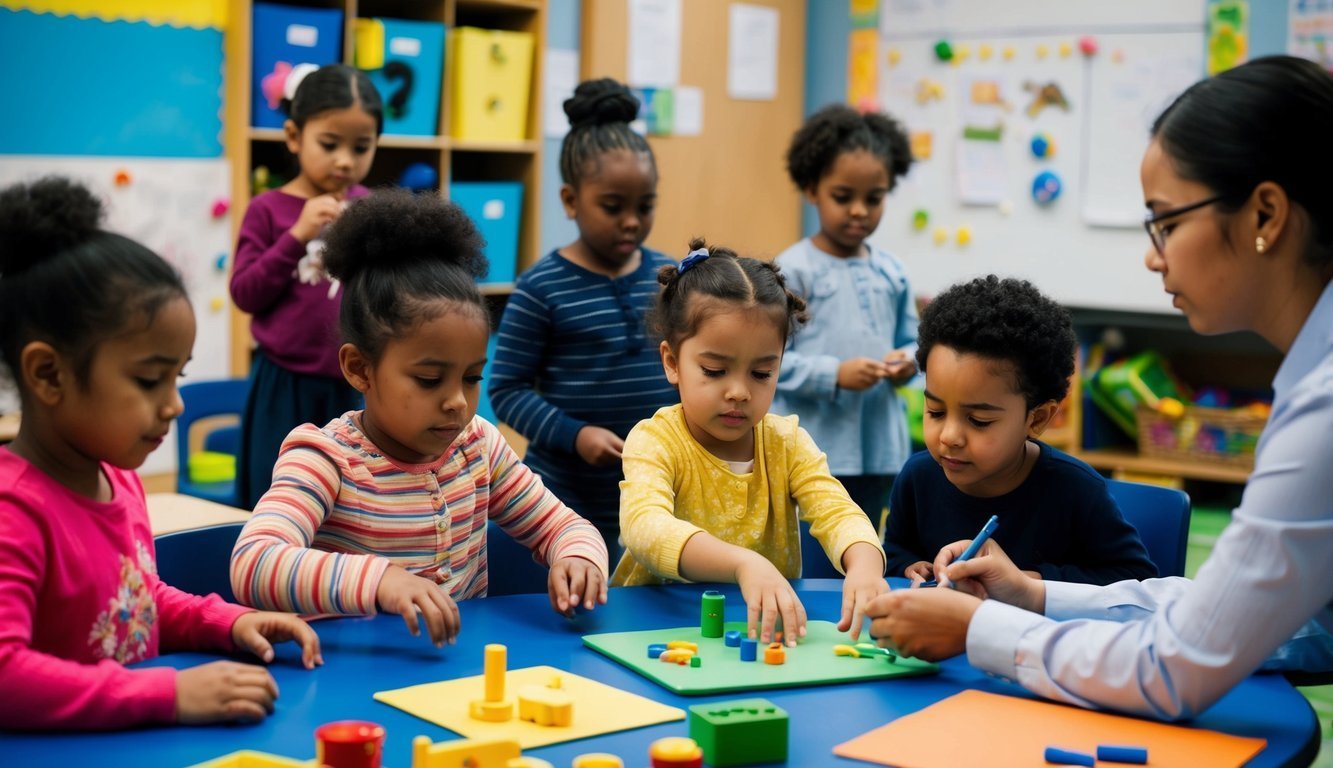Foundations of Baby Growth
Baby improvement encompasses a number of key domains that form a toddler’s development from infancy by way of adolescence.
These foundational areas work together and affect one another, contributing to a toddler’s total improvement and future outcomes.
Bodily Growth
Bodily improvement entails modifications in physique dimension, power, and motor abilities.
Infants progress from fundamental reflexes to voluntary actions like reaching and greedy.
Toddlers develop gross motor abilities resembling strolling and operating.
Fantastic motor abilities emerge as kids be taught to control small objects.
Early childhood experiences play an important function in bodily improvement.
Correct vitamin, sleep, and train assist wholesome development.
Common check-ups assist monitor developmental milestones.
Bodily exercise advantages kids’s total well being.
It strengthens muscle tissue and bones, improves cardiovascular health, and enhances coordination.
Encouraging energetic play and limiting display screen time promotes optimum bodily improvement.
Cognitive Growth
Cognitive improvement refers back to the development of psychological processes like pondering, reasoning, and problem-solving.
Infants start to know trigger and impact relationships.
Toddlers develop object permanence and symbolic pondering.
As kids develop, they purchase extra advanced cognitive abilities:
Reminiscence enchancment
Consideration span enhance
Summary pondering talents
Logical reasoning abilities
Neuroscience analysis reveals that early experiences form mind improvement.
Stimulating environments and responsive caregiving promote cognitive development.
Instructional actions and play-based studying assist cognitive improvement all through childhood.
Language Growth
Language improvement progresses quickly in early childhood.
Infants start with cooing and babbling.
By age 1, most youngsters communicate their first phrases.
Vocabulary expands rapidly within the toddler years.
Key milestones in language improvement embody:
Understanding easy directions
Utilizing two-word phrases
Talking in full sentences
Participating in conversations
Studying to kids helps language acquisition.
It exposes them to new phrases and sentence buildings.
Speaking with kids recurrently additionally boosts their language abilities.
Bilingual environments can improve cognitive flexibility.
Kids uncovered to a number of languages typically display superior problem-solving talents.
Social-Emotional Growth
Social-emotional improvement entails studying to know and handle feelings, type relationships, and work together with others.
Infants type attachments to caregivers.
Toddlers start to claim independence and expertise a variety of feelings.
As kids develop, they develop:
Empathy for others
Self-regulation abilities
Battle decision talents
Understanding of social norms
Optimistic parenting practices assist wholesome social-emotional improvement.
Responsive caregiving helps kids really feel safe and valued.
Modeling acceptable behaviors teaches kids the best way to navigate social conditions.
Peer interactions play an important function in social improvement.
By means of play and collaboration, kids be taught to share, take turns, and cooperate with others.
Evaluation and Milestone Monitoring
Monitoring a toddler’s improvement entails numerous strategies and instruments to make sure wholesome development.
Healthcare professionals and oldsters work collectively to observe progress and establish potential issues early.
Developmental Screenings
Developmental screenings are essential for assessing a toddler’s progress.
These screenings sometimes happen at well-child visits and contain standardized questionnaires or observations.
Pediatricians use validated screening instruments to judge numerous elements of improvement.
These could embody motor abilities, language acquisition, and social-emotional development.
Screenings assist establish potential delays or areas needing additional evaluation.
Early detection permits for well timed intervention and assist.
Milestone Checklists
Milestone checklists are priceless instruments for folks and healthcare suppliers.
They define anticipated developmental achievements at particular ages.
These checklists cowl areas resembling bodily, cognitive, and social-emotional improvement.
Dad and mom can use them to trace their youngster’s progress between medical visits.
The Facilities for Illness Management and Prevention’s “Be taught the Indicators.
Act Early” program gives complete milestone checklists.
These assets assist mother and father acknowledge typical developmental patterns and potential issues.
Developmental Analysis
When screenings or observations increase issues, a developmental analysis could also be crucial.
This in-depth evaluation is carried out by specialists in youngster improvement.
Evaluations could embody:
Standardized exams
Statement of the kid’s habits
Interviews with mother and father or caregivers
These assessments present an in depth image of a kid’s strengths and challenges.
They assist decide if intervention providers are wanted and information therapy plans.
Position of Healthcare Professionals
Pediatricians and household physicians play an important function in developmental surveillance.
They monitor kids’s development and improvement over time.
Healthcare professionals:
Conduct common developmental screenings
Interpret milestone achievements
Present steering to folks on supporting their youngster’s improvement
In addition they refer kids for additional analysis when crucial.
Ongoing communication between mother and father and healthcare suppliers is important for efficient developmental monitoring.
Affect of Surroundings and Society

A baby’s improvement is profoundly formed by their environment and social context.
Environmental elements and societal influences play essential roles in molding a toddler’s cognitive, emotional, and social development.
Impression of Early Childhood Schooling
Early childhood training offers a basis for lifelong studying and improvement. Excessive-quality early teaching programs can improve cognitive abilities, social competence, and educational readiness.
These applications typically concentrate on:
Language improvement
Drawback-solving talents
Social interplay abilities
Kids who attend preschool or structured early studying environments sometimes display improved:
Vocabulary
Pre-math abilities
Self-regulation
Early training additionally fosters independence and curiosity, making ready kids for future educational challenges.
Position of Environmental Components
The bodily and social atmosphere considerably impacts youngster improvement. Key environmental influences embody:
Dwelling setting
Neighborhood traits
Entry to assets
A stimulating house atmosphere wealthy in books, academic toys, and interesting actions promotes cognitive improvement.
Protected, clear neighborhoods with inexperienced areas assist bodily well being and social interactions.
Publicity to poisonous stress from poverty, violence, or neglect can hinder mind improvement and emotional regulation.
Conversely, optimistic environmental elements foster resilience and adaptableness in kids.
Societal Expectations and Help Methods
Societal norms and assist buildings drastically affect youngster improvement.
Cultural values form parenting practices and developmental targets.
Help methods resembling:
Prolonged household networks
Neighborhood organizations
Social providers
These methods present assets, steering, and emotional assist for households.
Societal expectations relating to training, habits, and achievement can inspire kids however can also create strain.
The Society for Analysis in Baby Growth emphasizes the significance of understanding how societal elements work together with particular person traits to form improvement.
Particular Issues in Baby Growth

Baby improvement entails distinctive challenges for some kids.
These challenges require specialised approaches to training, therapy, and assist from professionals throughout numerous disciplines.
Particular Schooling
Particular training addresses the distinctive studying wants of kids with disabilities. Individualized Schooling Packages (IEPs) are tailor-made to every youngster’s particular necessities.
These plans define targets, lodging, and assist providers.
Particular training academics make use of numerous methods to assist kids succeed academically and socially.
These could embody:
Modified curriculum
Assistive expertise
Small group instruction
Habits administration methods
Instructional psychologists play an important function in assessing kids’s studying wants and recommending acceptable interventions.
They work carefully with academics and oldsters to make sure a supportive studying atmosphere.
Developmental Disabilities
Developmental disabilities embody a variety of situations that have an effect on a toddler’s bodily, cognitive, or emotional development. Fragile X syndrome, for instance, is a genetic dysfunction that may trigger mental disabilities and behavioral challenges.
Frequent developmental disabilities embody:
Autism spectrum issues
Down syndrome
Cerebral palsy
Consideration deficit hyperactivity dysfunction (ADHD)
Early identification and intervention are essential for kids with developmental disabilities.
Common screenings and assessments assist establish potential points and information therapy plans.
Approaches to Remedy and Intervention
Remedy for developmental challenges typically requires a multidisciplinary method.
Scientific psychologists, psychiatric social employees, and youngster psychiatrists collaborate to develop complete care plans.
Proof-based interventions are important in addressing developmental points.
These could embody:
Cognitive-behavioral remedy
Utilized habits evaluation
Speech and language remedy
Occupational remedy
Household involvement is essential within the therapy course of.
Dad and mom and caregivers are sometimes educated to implement methods at house, reinforcing progress made throughout remedy classes.
Treatment could also be prescribed in some circumstances, notably for situations like ADHD or anxiousness issues.
Nevertheless, this choice is made fastidiously, contemplating the kid’s age and particular person wants.
Developments and Analysis

Current scientific breakthroughs have revolutionized our understanding of kid improvement.
Neuroscience, evidence-based practices, and rising developments are shaping the sector in unprecedented methods.
Contributions of Neuroscience
Neuroscience has dramatically enhanced our comprehension of kid improvement. Mind imaging methods now enable researchers to look at neural exercise in real-time, offering insights into cognitive and emotional processes.
These developments have revealed crucial intervals for language acquisition and emotional regulation.
Scientists have recognized particular mind areas chargeable for numerous developmental milestones, informing extra focused interventions.
Neuroscience analysis has additionally highlighted the significance of early experiences in shaping mind structure.
This information has led to the creation of simpler early childhood applications and parenting methods.
Proof-Primarily based Practices
The sector of kid improvement has more and more embraced evidence-based practices.
Rigorous analysis methodologies have improved the reliability and validity of developmental milestone checklists.
Giant-scale research carried out by organizations just like the Society for Analysis in Baby Growth have supplied priceless knowledge on normative improvement throughout various populations.
This data helps professionals establish potential developmental delays extra precisely.
Proof-based interventions for numerous developmental issues have proven promising outcomes.
For example, early intensive behavioral interventions for autism spectrum issues have demonstrated important enhancements in social and communication abilities.
Future Developments in Baby Growth
Technological developments are poised to remodel youngster improvement analysis and observe.
Digital actuality and augmented actuality instruments are being developed to evaluate and improve cognitive abilities in revolutionary methods.
Synthetic intelligence and machine studying algorithms are enhancing the accuracy of developmental assessments.
These applied sciences can analyze huge quantities of knowledge to establish delicate patterns and predict developmental trajectories.
Personalised interventions primarily based on genetic and environmental elements are on the horizon.
This method guarantees to tailor assist methods to every youngster’s distinctive wants and circumstances.
The mixing of expertise into interventions can be increasing entry to providers, notably in underserved areas.
Teletherapy and cell purposes are making developmental assist extra accessible to households worldwide.








